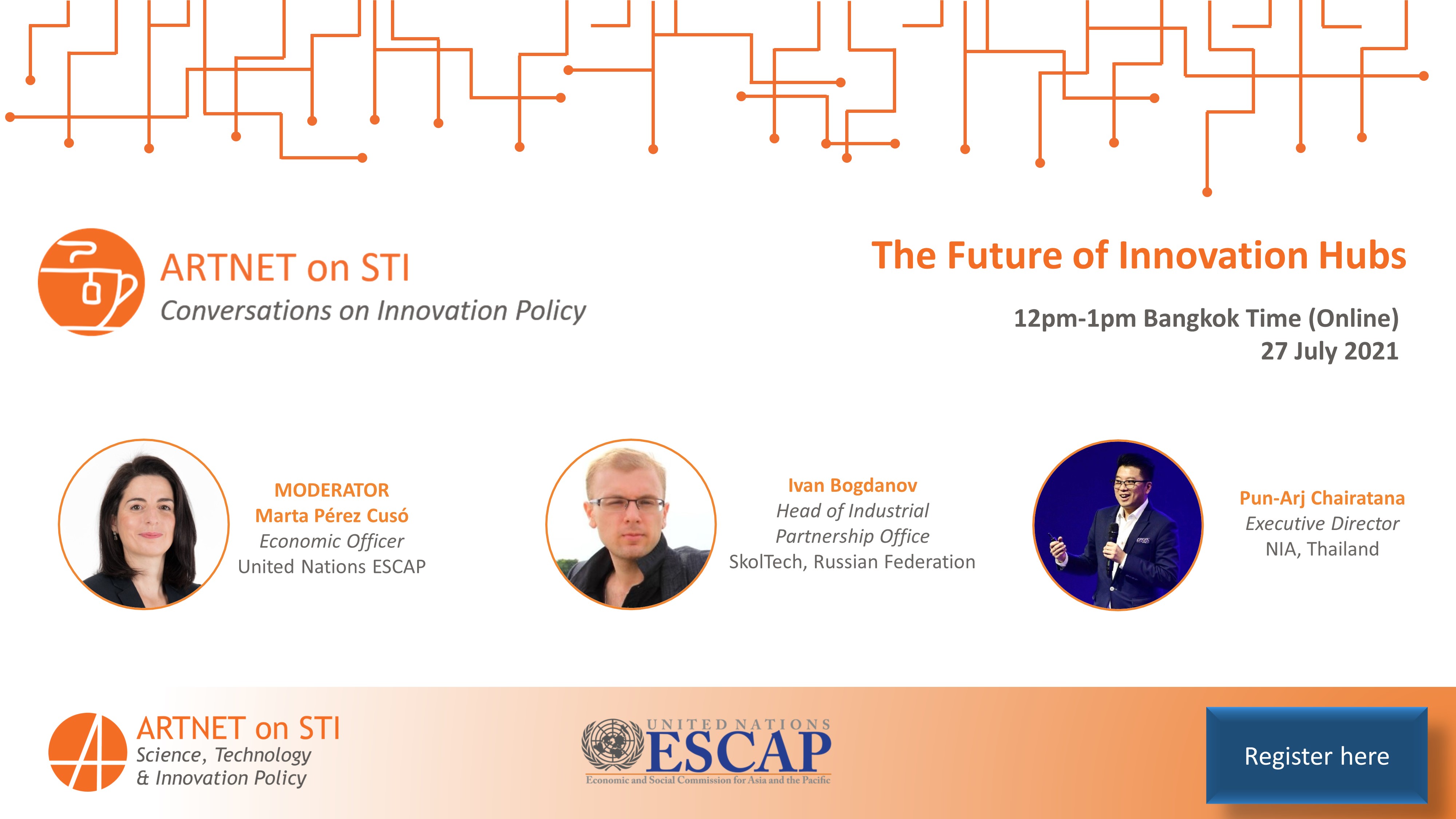Third ARTNETonSTI Conversation: The Future of Innovation Hubs
Virtual event, 1200 - 1300 Bangkok time (check your time)
Innovation happens when different actors interact and exchange knowledge.
Co-location and geographical proximity of interconnected firms and related innovation organisations - such as research institutions, innovation facilitators and services providers - help spur innovation. Co-location – whether in an industrial cluster, a science and technology parks, an innovation hub, or an innovation district – can facilitate technology transfer and flow of knowledge. It can also provide jobs to local residents; help attract talent, investors and innovative companies; and boost the impact and relevance of research institutions.
Such hubs may form spontaneously through organic development or may be planned or constructed through deliberate policy action by policymakers. However, efforts to construct innovation clusters - such as science and technology parks - do not always stimulate knowledge flows, upgrading and innovation among firms located in them. Geographic proximity and a heterogenous group of innovation actors do not suffice to foster innovation and technology transfer.
This session will review lessons learnt from the Russian Federation and Thailand and explore new models of co-location and co-creation.
This session will share the experience of different innovation hubs in Moscow and Bangkok, how they have been promoted and their achievements and limitations in terms of promoting inclusive economic growth.
Speakers will present their innovation hub and discuss:
- Key enablers for thriving innovation hubs
- Challenges innovation hubs managers face
- Impact on inclusive and sustained economic growth
Moderator: Marta Pérez Cusó, Economic Affairs Officer, ESCAP
More information on ARTNETonSTI Conversations here.


